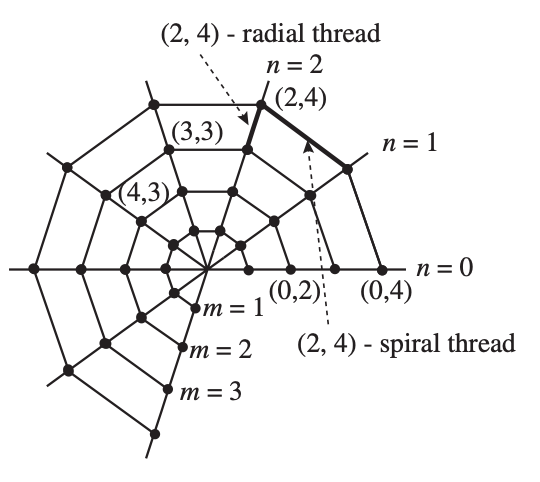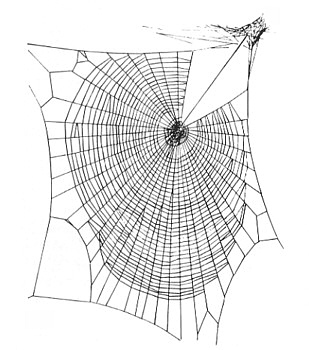In response to the second question (which I interpret as asking for math models of spider webs as they appear in Nature): There exist several distinct types of spider webs, one type that has been extensively studied is the orb web, see Simple Model for the Mechanics of Spider Webs.
A key property of the orb web model is that the web is free of stress concentrations even when a few spiral threads are broken. This is distinctly different from usual elastic materials in which a crack causes stress concentrations and weakens the material.
The model highlights the mechanical adaptability of the web: spiders can increase the number of spiral threads to make a dense web (to catch small insects) or they can adjust the number of radial threads (to adapt to environmental conditions or reduce the cost of making the web) – in both cases without reducing the damage tolerance of the web.


Left panel: Construction of the orb web described in the cited paper.
Right panel: Naturally occurring orb web (Wikipedia).
